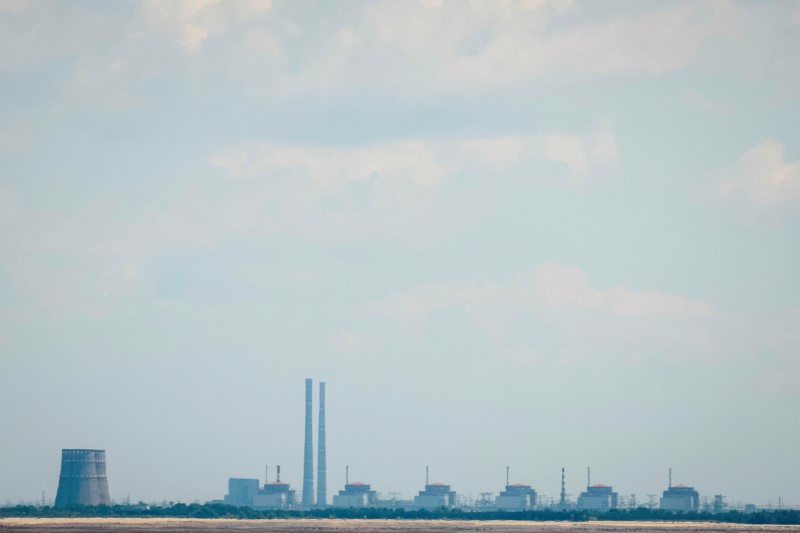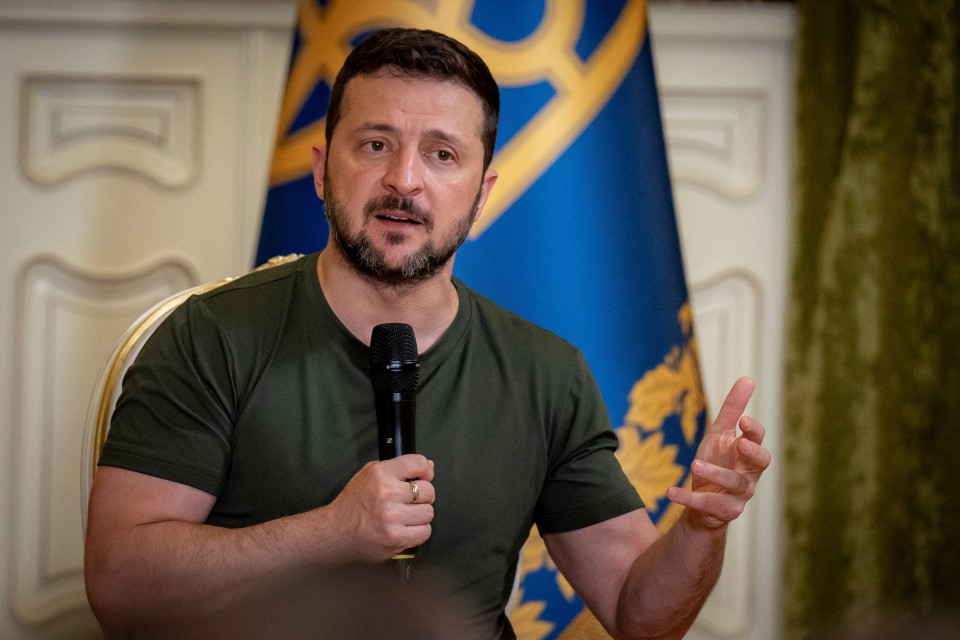
(Reuters) – Moscow and Kyiv accused each other of starting a fire on the grounds of Europe’s largest and now Russian-occupied Zaporizhzhia nuclear power plant in Ukraine on Sunday, with both sides reporting no sign of elevated radiation.
The U.N.’s International Atomic Energy Agency (IAEA) nuclear watchdog, which has a presence at the vast six-reactor facility, said its experts had seen strong, dark smoke coming from the northern area of the plant in southern Ukraine following multiple explosions.
Russian state news agencies, TASS and RIA, cited the country’s nuclear energy company Rosatom as saying the main fire was extinguished shortly before midnight on Sunday.
The fire comes less than a week after Ukraine’s forces launched their largest incursion into Russian territory since the war-start in 2022, a surprise move that has brought conflict into a new phase, after weeks of Moscow’s battlefield gains.
Ukraine’s nuclear power company Energoatom said in a statement on the Telegram messaging app that one of the cooling towers and other equipment were damaged.
Russia’s TASS agency also reported, citing Rosatom’s statement, that a cooling tower was damaged. Citing local Russian emergency ministry representatives, TASS said it was a non-functioning tower.
Russia captured the plant from Ukraine shortly after launching its full-scale invasion on its smaller neighbour in 2022, an attack described by Moscow as a “special operation”.The plant’s six nuclear reactors are in cold shutdown.

TRADING BLAME
By early Monday, it was not clear what caused the fire that started at around 8 p.m. (1700 GMT) on Sunday.
Ukrainian President Volodymyr Zelenskiy accused Russia of lighting the fire which he said was visible from the Kyiv-held city of Nikopol, which looks out onto the Russian-held plant.
Evgeny Balitsky, a Russian-installed official in the occupied south of Ukraine, accused Kyiv’s forces of causing the fire by shelling the nearby city of Enerhodar which, like the plant, was captured by Russia soon after its February 2022 invasion.
The IAEA said there had been no reported impact on nuclear safety at the site.
“Team was told by (the nuclear plant) of an alleged drone attack today on one of the cooling towers located at the site,” it wrote on X.
Ukraine’s Energoatom said Russia’s “negligence” or arson could have sparked the fire. Without providing evidence, it also said Russia uses the plant’s cooling towers to store military equipment and explosives.
Russia’s officials in turn, including Foreign Ministry spokeswoman, Maria Zakharova, accused Kyiv of deliberately trying to destroy the plant and sow “nuclear terror.”
Zelenskiy published grainy video showing belching black smoke that appeared to be coming out a cooling tower with a blaze burning at its foot.
“Currently, the radiation indicators are normal. But as long as Russian terrorists retain control over the nuclear plant, the situation is not and cannot be normal,” he said.
The six reactors at the plant located close to the front line of the war in Ukraine are not in operation but the facility relies on external power to keep its nuclear material cool and prevent a catastrophic accident.
Moscow and Kyiv have routinely accused each other of endangering safety around it.
(Reporting by Tom Balmforth and Yuliia Dysa; Writing by Lidia Kelly; Editing by Andrew Cawthorne, Josie Kao and Lincoln Feast.)







